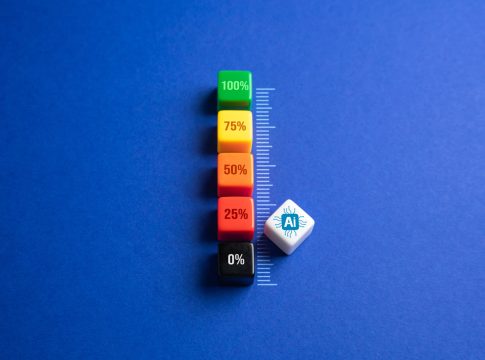Millennials Embrace AI, but Anxiety Looms
As artificial intelligence continues to evolve, it’s becoming evident that millennials are at the forefront of this technological wave. A recent study by iHire reveals that while this demographic is largely embracing AI as "power users," a significant 39% harbor fears about its potential to replace human jobs. This duality highlights the complex relationship millennials have with emerging technologies.
Thriving in the AI Landscape
Millennials, now fully entrenched in the workforce, are not just passive consumers of technology; they actively harness AI tools to enhance productivity. From automating mundane tasks to leveraging data for smarter decision-making, these digital natives are adept at using AI products that streamline their professional lives.
The term "AI power users" suggests a shift in the workplace dynamics where tech-savvy individuals are not merely following trends—they are leading them. With applications ranging from intuitive hiring software to advanced customer service Chatbots, millennials are integrating AI seamlessly into their professional routines.
The Fear of Replacement
However, this technological embrace is shadowed by a palpable unease. Nearly four in ten millennials express concern that AI tools could supplant their roles, triggering feelings of insecurity in an already competitive job market. The fear of being rendered obsolete by machines echoes a broader conversation about technological unemployment that has been ongoing since the Industrial Revolution.
To put this into perspective, past technological shifts—such as the introduction of mechanized looms—sparked similar anxieties. However, history shows that while specific jobs may diminish, new roles often emerge that adapt to the changing landscape.
Navigating the Future with AI
As businesses adopt AI more widely, the onus is on leaders to ensure that their teams are not only equipped with these tools but also educated about the evolving implications of AI on their careers. Initiatives focused on reskilling and upskilling are crucial in helping today’s workforce adapt to these changes.
Moreover, fostering a workplace culture that values human skills—like creativity and empathy—could alleviate some of the anxiety surrounding AI. After all, machines excel at data crunching and theory application but lack human intuition and emotional intelligence.
Conclusion: A Delicate Balance
The relationship millennials have with AI is indicative of a larger societal issue: the balance between leveraging technology for productivity and preserving the irreplaceable qualities of human workers. As we march forward into a world increasingly defined by AI, fostering adaptability and a cooperative human-AI dynamic will be essential in ensuring that technology enhances, rather than replaces, the human experience.
While the future may be uncertain, one thing is clear: millennials are ready to not just witness the AI revolution but also actively partake in shaping its development.

Writes about personal finance, side hustles, gadgets, and tech innovation.
Bio: Priya specializes in making complex financial and tech topics easy to digest, with experience in fintech and consumer reviews.

